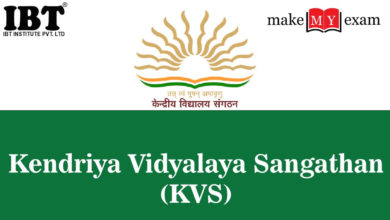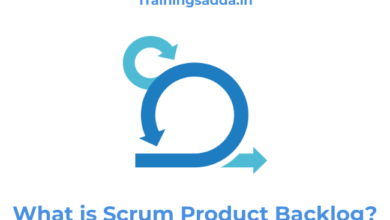Claude Edward Elkins Jr – A Biography of Leadership and Legacy

Last Updated on November 19, 2025 by Prabhakar A
From brakeman to C-suite executive in 37 years, how did he do it? We’re going to explain about Claude Edward Elkins Jr remarkable rise at Norfolk Southern Corporation, his unconventional path through English literature and Marine Corps service to railroad leadership, and the practical lessons any professional can apply about patience, deep expertise, and authentic leadership that actually works.
Look, real leadership doesn’t announce itself with fanfare. It builds quietly, one decision at a time, over decades of grinding work that most people never see. And that’s exactly how Ed Elkins carved out his place in the rail industry.
Starting from the absolute ground floor (we’re talking actual railroad tracks here), Elkins transformed a brakeman’s job into a blueprint for what authentic leadership looks like in 21st-century America. His story? It’s less about climbing corporate ladders and more about understanding every single rung, because he literally worked every position on his way up.
Table of Contents
Claude Edward Elkins Jr – Early Life & Family Background
Born and raised in Southwest Virginia, Claude Edward Elkins Jr. grew up in a region where railroading wasn’t just a career, it was woven into the fabric of community identity. The mountains of Southwest Virginia have long been railroad country, and Elkins’ roots run deep there.
What makes his heritage particularly fascinating is that he’s a fourth-generation railroader. Think about that for a second. Four generations. That means his great-grandfather was likely working the rails in the early 1900s, when steam locomotives were cutting through Appalachian valleys and the industry was still finding its footing. The “Jr.” suffix in his name carries weight, not just familial pride, but a century of railroad knowledge passed down through dinner table conversations and shared experiences.
Growing up in this environment meant Elkins inherited more than just a last name. He absorbed values that Southwest Virginia communities hold sacred: hard work without complaint, loyalty to your crew, and the understanding that your word is your bond. These weren’t abstract concepts taught in classrooms, they were lived realities he witnessed daily.
Education & Formative Years of Claude Edward Elkins Jr
After high school, Elkins headed to the University of Virginia’s College at Wise, where he pursued something completely unexpected for a future railroad executive: English literature. Not engineering. Not business. English.
That choice tells you something crucial about how his mind works. While his peers were crunching numbers and studying freight logistics, Elkins was dissecting Shakespeare, analyzing rhetoric, and learning how humans communicate and persuade. (Turns out that matters quite a bit when you’re eventually leading thousands of people).
He earned his bachelor’s degree in English, an unusual foundation for railroad leadership, but one that would serve him remarkably well. Years later, recognizing the business acumen he’d need, Elkins went back to school for his MBA from Old Dominion University, concentrating specifically in Port & Maritime Economics. This specialized focus gave him deep insight into how rail connects with global shipping networks, knowledge that would prove invaluable.
But he didn’t stop there. Elkins completed management programs at Harvard Business School (specifically the General Management Program), the University of Virginia Darden School of Business, and the University of Tennessee Supply Chain Institute. Each certificate represented another layer of expertise, another perspective on the complex logistics ecosystem he was navigating.
Know about: Career Opportunities for Digital Marketers in the USA
Career Journey & Rise in the Rail Industry
Before Norfolk Southern, though, came the Marines. Elkins served in the United States Marine Corps, where he learned discipline, strategic thinking, and how to lead under pressure, skills that don’t exactly hurt in railroad operations.
Early Roles & Breakthrough
In 1988, fresh from military service, Elkins joined Norfolk Southern in the most blue-collar position imaginable: Road Brakeman. He wasn’t starting in a corner office with a view. He was out on the rails, coupling cars, setting brakes, and learning the railroad from the ground up.
From there he worked as a Conductor, then a Locomotive Engineer, then a Relief Yardmaster. Each role deepened his understanding of railroad operations, not from spreadsheets and reports, but from direct, hands-on experience. He knew what it felt like to work a 12-hour shift in brutal weather. He understood the safety concerns that kept crews up at night.
This operational foundation became his superpower. When he eventually moved into management, he could speak the language of the field crews because he’d been one of them. That authenticity earned him credibility that no MBA alone could provide.
Major Achievements & Contributions
After his operational years, Elkins transitioned into marketing, specifically Intermodal Marketing, where he spent two full decades mastering the art of moving freight between trucks, trains, and ships. During this period, he held positions including Account Manager, Assistant Market Manager, and eventually General Manager of Sales & Domestic operations.
In 2016, the company tapped him for Group Vice President of Chemicals Marketing. Two years later, in 2018, he was promoted again to Vice President of Industrial Products. Finally, in December 2021, Norfolk Southern named him Executive Vice President and Chief Commercial Officer, a role where he now oversees the company’s Intermodal, Automotive, and Industrial Products divisions, plus Real Estate, Industrial Development, Short Line Marketing, Field Sales, and Customer Logistics groups.
Under his commercial leadership, Norfolk Southern has strengthened its position as a customer-centric freight network serving the majority of America’s population and manufacturing base. The company moves over 7 million carloads annually and helps customers avoid approximately 15 million tons of yearly carbon emissions by choosing rail over truck transport.
Leadership Philosophy & Style
What sets Elkins apart isn’t just what he’s accomplished, it’s how. His leadership style reflects his journey: grounded, accessible, focused on empowering teams rather than micromanaging them.
Having worked union positions himself, he understands labor relations from both sides of the table. He knows that operational efficiency doesn’t come from squeezing workers harder, it comes from giving them the tools, training, and respect they need to excel. That perspective has made him an advocate for safety procedures and environmental initiatives that prioritize people alongside profits.
Colleagues describe his approach as collaborative rather than authoritarian. He listens. He asks questions. And perhaps most importantly, he remembers what it was like to be the guy on the ground implementing decisions made in boardrooms.
Check the: Tips to Getting the Job You Want
Impact and Legacy
The ripple effects of Elkins’ leadership extend well beyond Norfolk Southern’s balance sheet. His commitment to sustainability has helped position rail transportation as a greener alternative in an era of climate consciousness. His focus on safety has influenced industry-wide standards.
Currently, he serves on several influential boards: Vice Chair of the Georgia Chamber of Commerce, director of the National Association of Manufacturers, director of TTX Company, director of the East Lake Foundation, and director at Georgia State University. He’s also a member of The Conference Board’s Council for CMOs and active in the Traffic Clubs of Chicago, New York, and Pittsburgh.
These aren’t ceremonial positions. They represent real influence over transportation policy, manufacturing standards, and community development. Through these roles, Elkins shapes not just his company’s future, but the industry’s trajectory.
Lessons for Today & Inspiring Takeaways
So what can today’s leaders, whether you’re running a Fortune 500 company or managing a five-person team, learn from Elkins’ path?
Start where you are. Elkins didn’t wait for the perfect role or the ideal circumstances. He took a brakeman job and made it count. Every position taught him something he’d need later.
Never stop learning. From his English degree to his MBA to executive programs at Harvard, Elkins consistently invested in expanding his knowledge base. Education wasn’t a one-time achievement, it was a career-long commitment.
Lead with empathy. His operational background gives him genuine understanding of the challenges facing frontline workers. That empathy makes him a more effective leader than someone who only knows spreadsheets.
Play the long game. Elkins spent 37 years at Norfolk Southern, methodically building expertise and relationships. In an era of job-hopping, his loyalty and patience paid extraordinary dividends.
Honor your roots while embracing change. As a fourth-generation railroader, he respects tradition, but he’s also pushed his company toward innovation and sustainability. That balance is increasingly rare.
Conclusion
Claude Edward Elkins Jr.’s 37-year journey from Road Brakeman to Executive Vice President proves that real leadership isn’t about shortcuts, it’s about showing up, learning deeply, and earning credibility through every rung of the ladder. As a fourth-generation railroader, he’s honored tradition while pushing Norfolk Southern toward innovation and sustainability, demonstrating that expertise and patience still matter in an era obsessed with overnight success.
What makes his story resonate is simple: he stayed committed long enough to truly master his craft, understood the business from the ground up, and built the kind of authentic leadership that can’t be faked or fast-tracked. For aspiring leaders in any industry, that’s the real lesson, there’s profound power in playing the long game.
Frequently Asked Questions (FAQ’s)
Who is Claude Edward Elkins Jr.?
Claude Edward Elkins Jr. (commonly known as Ed Elkins) serves as Executive Vice President and Chief Commercial Officer at Norfolk Southern Corporation, one of North America’s premier freight railroads. He’s a fourth-generation railroader who rose from entry-level positions to C-suite leadership.
What did Claude Elkins Jr. do before becoming an executive?
Before his executive career, Elkins served in the U.S. Marine Corps, then joined Norfolk Southern in 1988 as a Road Brakeman. He worked his way through operational roles including Conductor, Locomotive Engineer, and Relief Yardmaster before transitioning into marketing positions.
Where did Claude Edward Elkins Jr. receive his education?
Elkins earned a bachelor’s degree in English from the University of Virginia’s College at Wise and an MBA with a concentration in Port & Maritime Economics from Old Dominion University. He also completed executive education programs at Harvard Business School, UVA Darden, and the University of Tennessee.
What companies has Claude Elkins Jr. worked for?
Elkins has spent his entire 37-year railroad career at Norfolk Southern Corporation, starting in 1988. He currently holds board positions with TTX Company, the National Association of Manufacturers, the East Lake Foundation, and Georgia State University, among others.
What is Claude Edward Elkins Jr.’s leadership philosophy?
His leadership approach emphasizes operational understanding, team empowerment, and safety-first culture, principles rooted in his experience working union positions and operational roles before moving into management. He advocates for sustainable practices and values-driven decision-making.
Comments
0 comments




